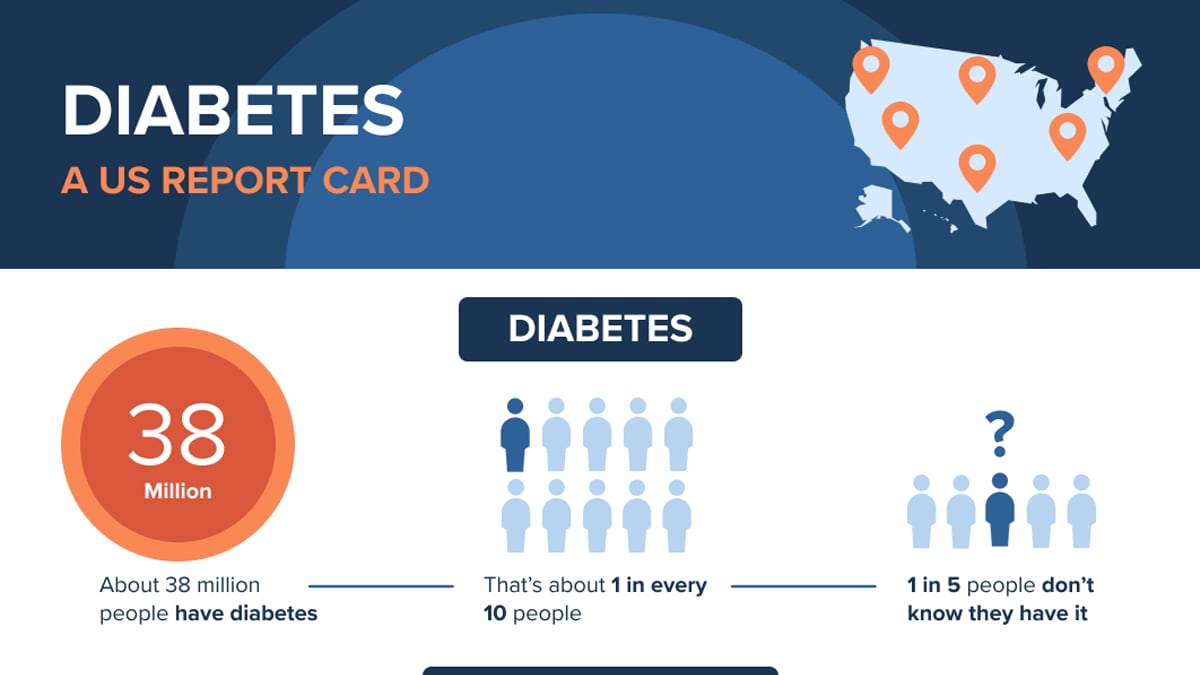Baeugi News Hub
Your source for the latest news and insightful articles.
Sugar Rush or Crash: Understanding Diabetes in a Sweet World
Discover the sweet and sour of diabetes! Unravel how sugar impacts your health and learn to navigate a world of temptations.
What Are the Different Types of Diabetes and Their Symptoms?
Diabetes is a chronic condition that arises when the body cannot effectively regulate blood sugar levels. There are three main types of diabetes: Type 1 diabetes, Type 2 diabetes, and Gestational diabetes. Type 1 diabetes is an autoimmune condition, typically diagnosed in children and young adults, where the immune system attacks insulin-producing cells in the pancreas. Symptoms can include frequent urination, increased thirst, and weight loss. Type 2 diabetes, which accounts for the majority of diabetes cases, often develops in adults and is usually linked to obesity and physical inactivity. Symptoms include fatigue, blurred vision, and slow-healing sores. Lastly, gestational diabetes occurs during pregnancy and may increase the risk of developing Type 2 diabetes later in life.
Recognizing the symptoms of diabetes is essential for early diagnosis and effective management. Common symptoms across all types of diabetes include:
- Increased thirst and hunger
- Frequent urination
- Fatigue and irritability
- Blurred vision
- Slow-healing sores or frequent infections
If you or someone you know is experiencing these symptoms, it’s vital to consult a healthcare professional for proper evaluation and advice.

The Impact of Sugar on Blood Sugar Levels: What You Need to Know
Understanding the impact of sugar on blood sugar levels is crucial for maintaining overall health, especially for individuals managing diabetes or prediabetes. When sugar is consumed, it rapidly enters the bloodstream, leading to a spike in blood glucose levels. This surge prompts the pancreas to release insulin, a hormone responsible for helping cells absorb glucose. If sugar intake is excessive, it can create a cycle of blood sugar fluctuations, leading to feelings of fatigue, hunger, and irritability, significantly affecting daily functioning.
Moreover, it’s important to differentiate between different types of sugars. Natural sugars, found in fruits and dairy, come with fiber and essential nutrients that mitigate their impact on blood sugar levels. In contrast, added sugars, commonly present in processed foods, can cause rapid spikes. To manage blood sugar effectively, consider the following tips:
- Limit the intake of sugary beverages.
- Choose whole fruits instead of fruit juices.
- Read food labels to avoid hidden sugars.
By being mindful of your sugar consumption, you can contribute to better blood sugar management and overall health.
How to Manage Cravings and Make Healthier Choices in a Sugary World
Living in a sugary world can make it challenging to manage cravings and maintain a healthy lifestyle. One effective strategy is to understand the triggers for your cravings. Is it stress, boredom, or habit? By keeping a food diary, you can track when and why you reach for sugary snacks, allowing you to identify patterns in your behavior. Additionally, consider replacing high-sugar snacks with healthier alternatives. For example, instead of reaching for candy, opt for fresh fruit or nuts, which provide natural sweetness and essential nutrients.
Staying hydrated is another key to managing cravings. Often, our bodies confuse thirst with hunger, leading to unnecessary snacking. Make it a habit to drink water throughout the day and limit your consumption of sugary drinks. When cravings strike, try to wait for 10-15 minutes before giving in; this brief pause can help you assess whether you're actually hungry or just experiencing a passing urge. Finally, incorporating regular exercise into your routine can enhance your mood and reduce the likelihood of reaching for sugary foods as a coping mechanism.